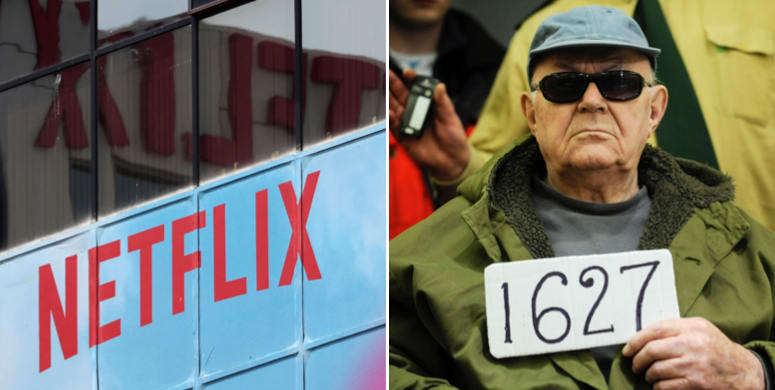
Polen kräver att Netflix ändrar i förintelsefilm
Polens premiärminister har skrivit ett brev till streamingjätten Netflix där han kräver att de gör ändringar i dokumentären ”Devil next door”.
Mateusz Morawiecki menar att dokumentären ”skriver om historien” genom att visa en karta över var förintelselägren fanns med de nuvarande polska gränserna och inte som landets gränser såg ut när Tyskland ockuperade Polen.
Netflix säger till Reuters att de är medvetna om kritiken mot dokumentären.
bakgrund
The Devil Next Door
Wikipedia (en)
The Devil Next Door is a documentary series about John Demjanjuk, which premiered on Netflix in 2019.Poland's prime minister Mateusz Morawiecki criticized the documentary for including a modern-day map of Poland, with the location of Nazi death camps marked on it. Morawiecki considered this to imply that Poland was responsible for the death camps instead of Nazi Germany. The map was shown as part of a segment from a 1985 TV report that first detailed the allegations against Demjanjuk.
bakgrund
John Demjanjuk
Wikipedia (en)
John Demjanjuk (born Ivan Mykolaiovych Demjanjuk; Ukrainian: Іван Миколайович Дем'янюк; 3 April 1920 – 17 March 2012) was a Ukrainian-American autoworker accused of war crimes for having allegedly worked as a guard at Nazi extermination camps during World War II. Legal cases surrounding his alleged Nazi collaboration began during the 1970s and continued until his death in 2012.
Ivan Demjanjuk was born in Ukraine, and during World War II was drafted into the Soviet Red Army before being captured by the Germans and held as a prisoner of war in 1942. His whereabouts from 1942 to 1945 are controversial: although Demjanjuk claimed to have been a prisoner of war during this period, according to (disputed) evidence later brought against him in court, he served as a guard at various Nazi concentration camps and extermination camps. In 1945, he joined the Russian Liberation Army, eventually entering various displaced persons camps after the war. In 1952, he emigrated from West Germany to the United States where he anglicized his name from Ivan to John. He took up residence in Cleveland, Ohio, where he worked in an auto factory until his retirement.
Starting in the 1970s, Demjanjuk was accused of having been a Trawniki man, and based on eyewitness testimony by Holocaust survivors, he was identified as the notorious and savagely violent Treblinka extermination camp guard, "Ivan the Terrible". These accusations culminated in Demjanjuk's deportation to Israel in 1986, where he was tried for crimes against humanity. In 1988, Demjanjuk was convicted and sentenced to death. Demjanjuk maintained his innocence throughout the trial, claiming that it was a case of mistaken identity. In 1993, the verdict was overturned by the Israeli Supreme Court, based on new evidence that cast reasonable doubt over the identity of "Ivan the Terrible". Although the judges agreed that there was sufficient evidence to show that Demjanjuk had actually worked at the Sobibor extermination camp, Israel declined to prosecute. In September 1993, Demjanjuk returned to Ohio.
In 2001, Demjanjuk was charged in Germany with over 27,900 counts of acting as an accessory to murder: one for each person killed at Sobibor during the time he was alleged to have served as a guard there. He was deported from the US to Germany in 2009. On 12 May 2011, Demjanjuk was convicted pending appeal and sentenced to five years in prison. According to historian Lawrence Douglas, in spite of the serious missteps along the way, the German verdict brought the case "to a worthy and just conclusion." After the conviction, Demjanjuk was released pending trial by the German Appellate Court. He lived at a German nursing home in Bad Feilnbach, where he died on 17 March 2012. Because his appeal had not been completed, the interim conviction was annulled, meaning that Demjanjuk has no criminal record and is still legally presumed innocent.
Omni är politiskt obundna och oberoende. Vi strävar efter att ge fler perspektiv på nyheterna. Har du frågor eller synpunkter kring vår rapportering? Kontakta redaktionen